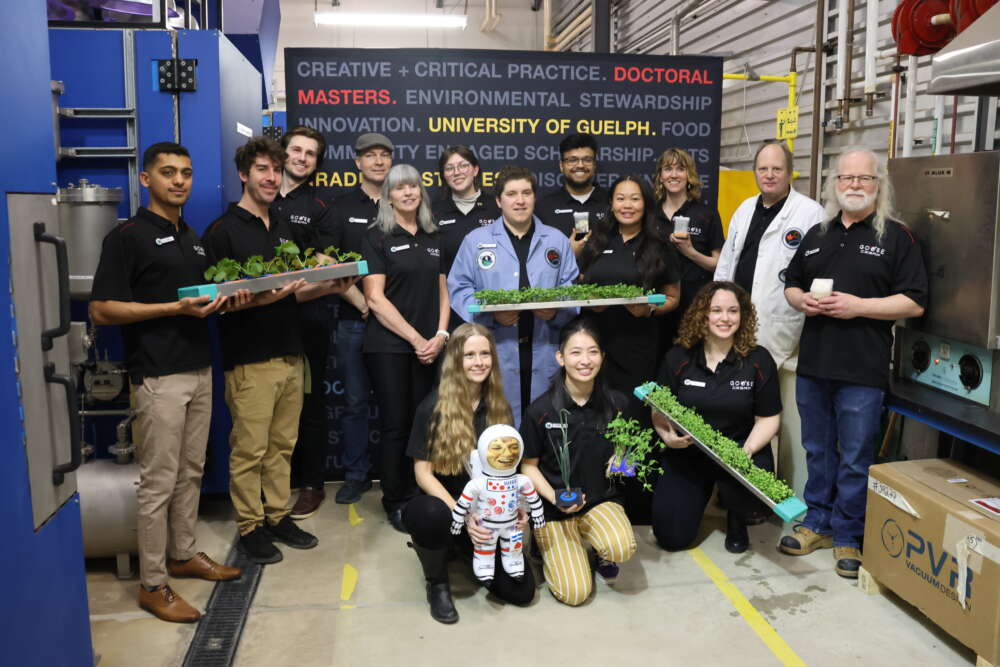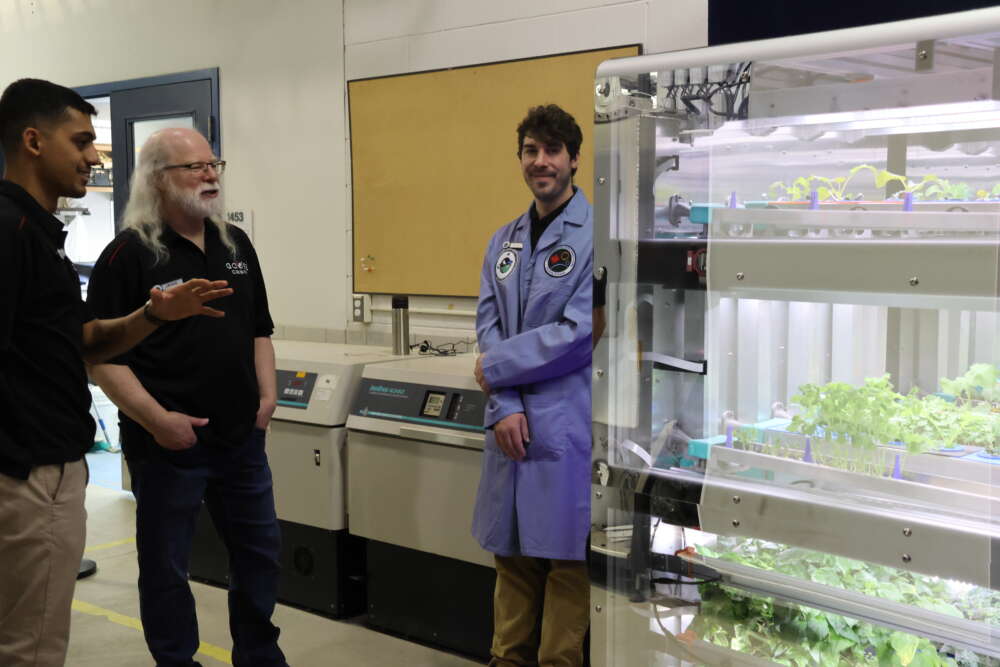A team of visionary U of G student scientists come one step closer to winning the Deep Space Food Challenge, put on by the Canadian Space Agency’s (CSA) in partnership with Impact Canada.

On Wednesday Feb. 7, the panel of judges from the CSA and the Canadian Food Inspection Agency visited U of G to assess the full-scale plant-growth chamber developed by the Canada GOOSE (Growth Options for Outer Space Environments) team.
The U of G Canada GOOSE team is made up of students and staff from the Ontario Agricultural College with members from the Interdisciplinary Design Lab, College of Arts and their external partner from Noki Farms (Guelph).
The team is led by Professor Emeritus Dr. Mike Dixon, Director of the Controlled Environment Systems Research Facility. They are up against three other finalists from Concordia University, McGill University, and Ecoaction Innovative Solutions Inc. to win the grand prize of $380,000 in grant funding.
Last spring, the team advanced to the finals and was presented with $100,000 to develop their prototype into a full-scale food production system that could produce food for future space missions.
On Wednesday, they had the opportunity to reveal their full-scale working model for the final judging. Led by PhD candidate Ajwal Dsouza and MSc candidate Jordan Silver, students within the Controlled Environment Systems Research Facility, the demonstration showed how it can grow vegetables, microgreens, fruit and mushrooms without soil, sunlight or the need to constantly replenish fresh water.

The modular self-contained crop production system works is hydroponic, where seeds are planted in a reusable growing medium and regularly irrigated with a fertigation solution made of water and fertilizer and lit by custom LED lights. Only a few hours of maintenance a week are needed to yield as much as 150 kilograms of food a year.
The entire system’s controls can be adjusted remotely through the operations of the GOOSE app developed by the team. The app can be run on any device (iOS, android) with a Bluetooth connection. Through the app, users view operational data and adjust factors such as nutrients, humidity and temperature, and more.
The team has also developed an advanced patent pending electrochemical oxidation system that will eliminate pathogens and break down organic contaminants in the fertigation solution to keep crops healthy and safe for consumption.
The GOOSE project builds on nearly three decades of research at U of G that have made it among the world leaders in controlled environment agricultural technology.
Lessons learned through this research can help grow food not only in space, but also in challenging environments on Earth such as Canada’s North.
